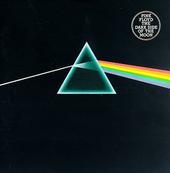This is a Pink Floyd Tribute Profile, and if you add us to your friends then you should know all there is to know about Pink Floyd!
Pink Floyd are the premier space-rock band. Since the mid-'60s, their music has relentlessly tinkered with electronics and all manner of special effects to push pop formats to their outer limits. At the same time they have wrestled with lyrical themes and concepts of such massive scale that their music has taken on almost classical, operatic quality, in both sound and words. Despite their astral image, the group were brought down to earth in the 1980s by decidedly mundane power struggles over leadership and, ultimately, ownership of the band's very name. Since that time, they've been little more than a dinosaur act, capable of filling stadiums and topping the charts, but offering little more than a spectacular recreation of their most successful formulas. Their latter-day staleness cannot disguise the fact that, for the first decade or so of their existence, they were one of the most innovative groups around, in concert and (especially) in the studio.
While Pink Floyd are mostly known for their grandiose concept albums of the 1970s, they started as a very different sort of psychedelic band. Soon after they first began playing together in the mid-'60s, they fell firmly under the leadership of lead guitarist Syd Barrett, the gifted genius who would write and sing most of their early material. The Cambridge native shared the stage with Roger Waters (bass), Rick Wright (keyboards), and Nick Mason (drums). The name Pink Floyd, seemingly so far-out, was actually derived from the first names of two ancient bluesmen (Pink Anderson and Floyd Council). And at first, Pink Floyd were much more conventional than the act into which they would evolve, concentrating on the rock and R&B material that were so common to the repertoires of mid-'60s British bands.
Pink Floyd quickly began to experiment, however, stretching out songs with wild instrumental freak-out passages incorporating feedback, electronic screeches, and unusual, eerie sounds created by loud amplification, reverb, and such tricks as sliding ball bearings up and down guitar strings. In 1966, they began to pick up a following in the London underground; onstage, they began to incorporate light shows to add to the psychedelic effect. Most importantly, Syd Barrett began to compose pop-psychedelic gems that combined unusual psychedelic arrangements (particularly in the haunting guitar and celestial organ licks) with catchy melodies and incisive lyrics that viewed the world with a sense of poetic, child-like wonder.Have fun ol' chap.
I edited my profile with Thomas’ Myspace Editor V3.6 !
